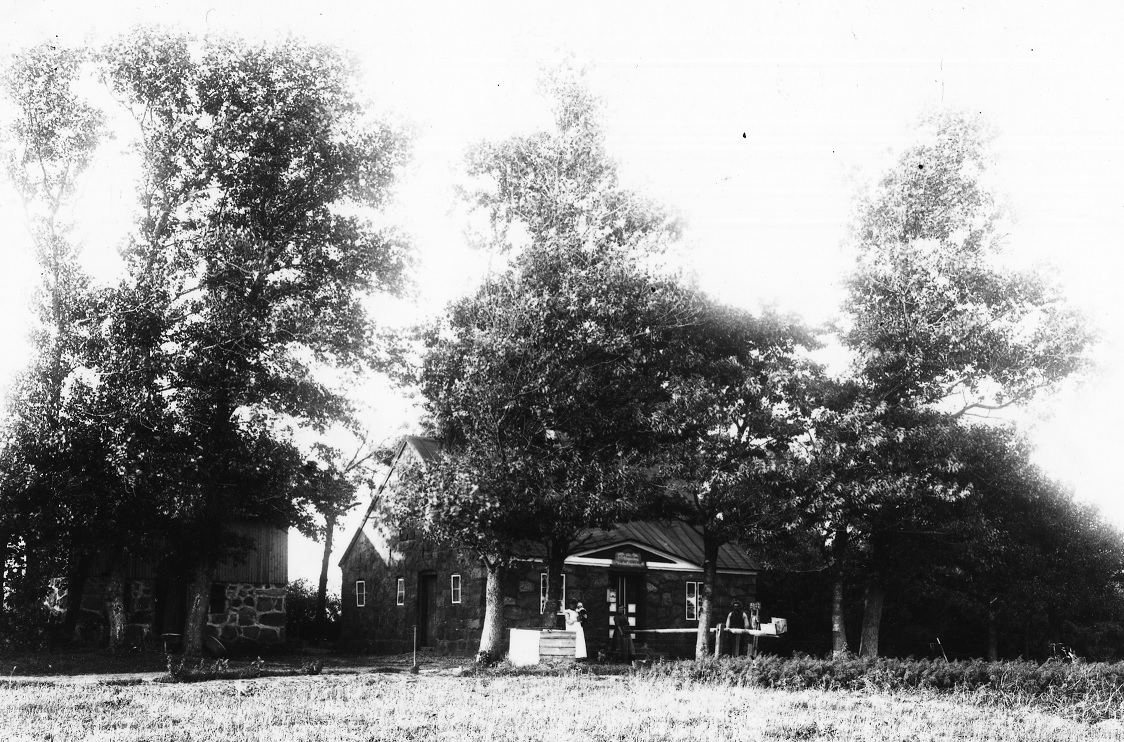The house called Friheden (Freedom)
The house with the telling name of 'Friheden' (Freedom) was built in 1870 by the owner of Beistrupgård in Københoved, Hans Diderik Kloppenborg (1802-1882). After the defeat in 1864, he could be found among the pro-Danish standard bearers, and he was an sworn opponent of the politics which the Prussians brought to Schleswig.
In the late 1860s, when he really felt the ground burning beneath him, he built a haven in the freedom north of the border.
Built of granite boulders
Freedom is a small unpretentious house built of granite boulders. It was built by Københoved's parish farmer Hans Diderik Kloppenborg on Beistrupgårds soils north of the river Kongeå. Here he could be left alone by the German authorities and had the freedom to read his Danish newspapers.
Rumour has it that young Southern Jutlanders on the run from either the German military service or the Prussian authorities could find a temporary refuge at Friheden.

Friheden around 1910.
Photo: Vejen Lokalhistoriske Arkiv.
Apprenticed as a tobacco spinner
It seemed unlikely when Hans Diderik Klopp Borgs was born that he might one day be a large farmer and pro-Danish parish king in Københoved. He was born into an average family in Gram where the father was a local official and their home language was German. The father was a property registrar in Frøs and Kalvslund districts.
As a young man he apprenticed as a tobacco spinner with an uncle in Haderslev, but he was never to become a tobacco spinner. Her uncle took over Beistrupgård in Københoved, where Diderik Kloppenborg became manager at a very young age. He took over the farm when he was in his late twenties, which he ran with great skill. He soon became a leading figure in the parish.
During the three-year war, he was assigned to the Danish army's scout section and in 1849 he followed Olaf Rye's detachment up through Jutland. It was an engagement that the German authorities never forgot.
Friends with the king
The core of Hans Diderik Klopp Borg's patriotism was old-fashioned royal allegiance. He was a personal friend of King Frederik VII.
During three-year war he had to stay in Copenhagen for a long period, where he got to know N.F.S. Grundtvig. This acquaintance influenced him for life.
In 1853, he became a member of Rødding Højskole's (High School) Board and he later also became co-owner of the school. He was also among Rødding Frimenighed's (independent congretation) most fervent supporters and laid house for their meetings.
Author: Linda Klitmøller, museum curator, Sønderskov Museum

